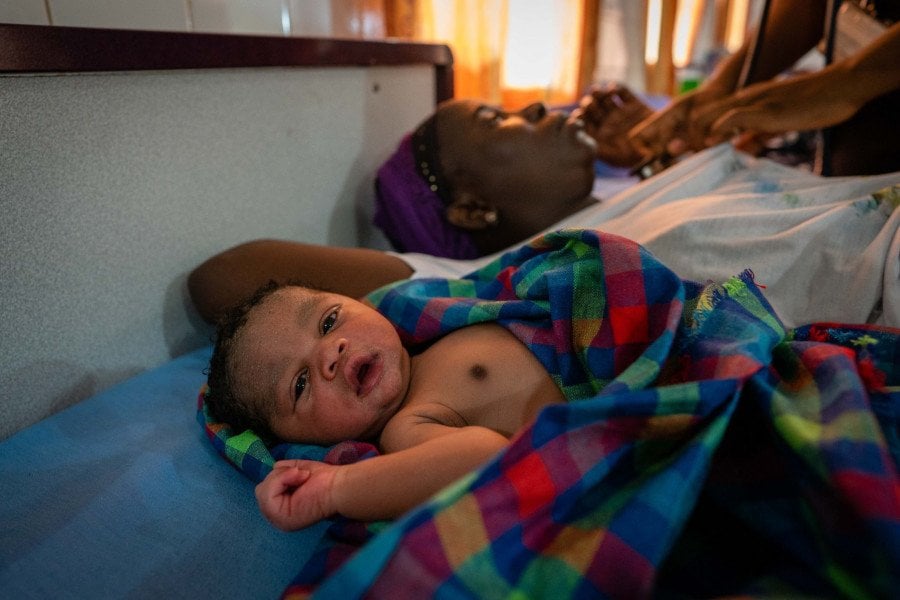Holistic approach needed to significantly improve rates of poor pregnancy outcomes
3 March 2021 London School of Hygiene & Tropical Medicine London School of Hygiene & Tropical Medicine https://lshtm.ac.uk/themes/custom/lshtm/images/lshtm-logo-black.png
Each year, millions of babies are born without life (stillbirth) and millions more die between the first day of birth and the 28th day (neonatal death), globally. These deaths and other poor outcomes of pregnancy, although mostly preventable, are still unacceptably high in Sub-Saharan Africa (SSA) and South Asia where over 80% of all such events occur.
In new study results published in Frontiers, researchers from the MRC Unit The Gambia at LSHTM show that neonatal hospitalisation and deaths are high, and there is a critical need to focus on decreasing the high rate of still births.
The Gambia, like most countries in Sub-Saharan Africa, has a struggling health system that lacks the adequate capacity and resources to prevent some of these avoidable deaths and other undesirable outcomes.
Between April 2013 and April 2014, the researchers used clinical information obtained from 829 mothers during a phase 3 randomised clinical trial conducted in a Government-run public health facility in western Gambia. They documented the rates of poor pregnancy outcomes including stillbirths, hospitalisation, and neonatal deaths; and evaluated factors associated with increased risk of these poor outcomes. Only women without known risk factors for poor pregnancy outcomes were included in the study.
The results showed high rates of stillbirths (15.4 per 1,000 births) and neonatal mortality (19.3 per 1,000 live births). In addition, almost 1 out of 12 newborns needed hospitalisation during the neonatal period. As expected, the main causes of neonatal deaths were infections, severe birth asphyxia and major congenital malformations. Some of the deaths could have been prevented or mitigated by early identification and preventative measures. However, the limited infrastructure and skilled human capacity hampered the adequate management of deliveries. For example, most fresh stillbirths occurred during the night shifts, when deliveries were largely attended by less-skilled staff, leading to poor labour monitoring and delays in early recognition of obstetric emergencies, as well as late referral to the teaching hospital.
Equally, the researchers observed two clusters of hospitalisations: one of birth asphyxias and the other of neonatal sepsis, and how these two events further demonstrate the gaps in the health system that lead to poor pregnancy outcomes. The results highlight that having a major congenital malformation, being born as a low birth weight (LBW) baby, or twin delivery were associated with increased risk of hospitalisation and neonatal death (excluding LBW).
Conversely, there were no maternal deaths out of the 829 women in the study which, when considered against the mortality rate previously described in rural Gambia (461 per 100,000 live births), four deaths would have been anticipated.
Dr Bully Camara, Clinical Trial Coordinator and lead author said, “This work is unique and revealing of the gaps in a weak health system like ours, and how such gaps affect the quality of health care delivery and desired outcomes. The experiences and observations reported in this paper are first-hand information gathered by the trial team, in close consultation with the leadership of the health facility, some of which required pragmatic solutions that were relatively inexpensive but positively impactful’’.
Professor Anna Roca, Professor of Epidemiology and Principal Investigator of the study said, “A decrease in neonatal deaths in The Gambia is a required milestone to attain the Sustainable Development Goals. This is an important study, as it points towards the main causes of perinatal and neonatal mortality among children born in health facilities in The Gambia; a necessary information to design appropriate sustainable interventions to decrease current rates”.
The study was jointly funded by the Medical Research Council UK and the UK Department for International Development (DFID) under the MRC/DFID Concordat Agreement. It was also part of the EDCTP2 programme, supported by the European Union.
The study underlines the urgent need for a holistic approach to develop capacity and bridge high-risk gaps in the health system to improve quality of care and outcomes in The Gambia.
LSHTM's short courses provide opportunities to study specialised topics across a broad range of public and global health fields. From AMR to vaccines, travel medicine to clinical trials, and modelling to malaria, refresh your skills and join one of our short courses today.